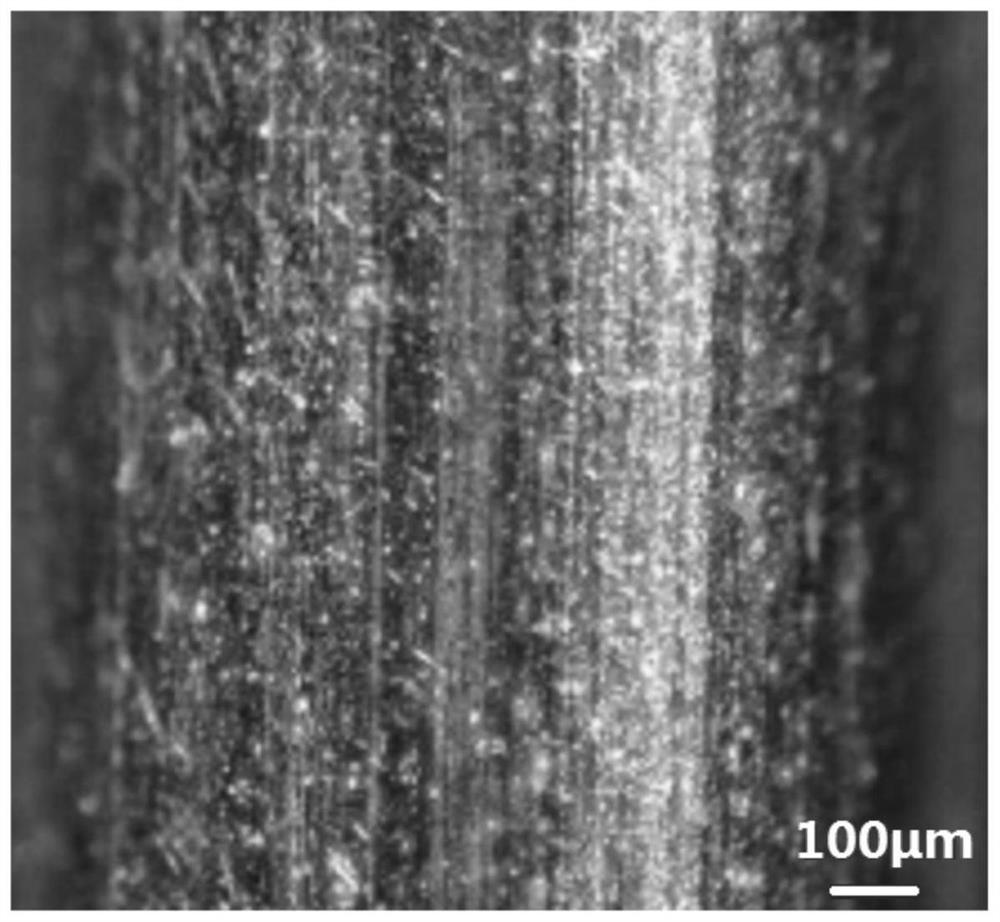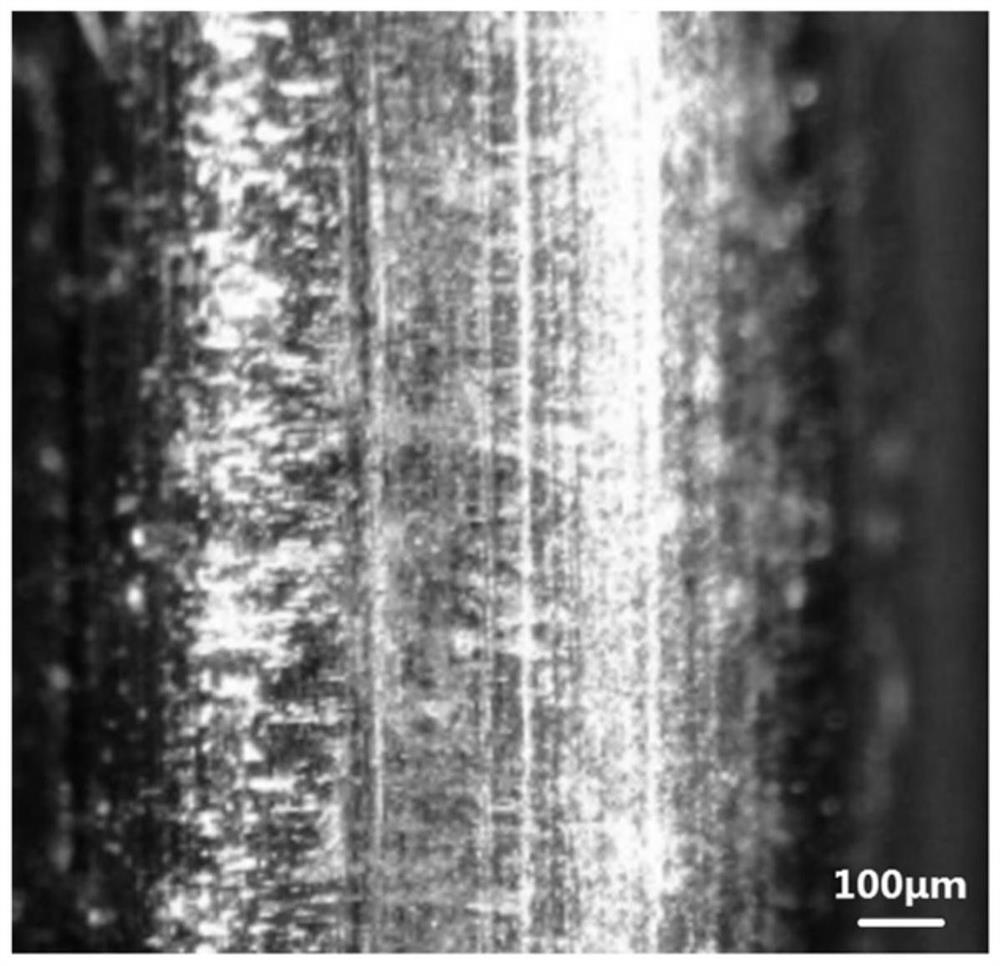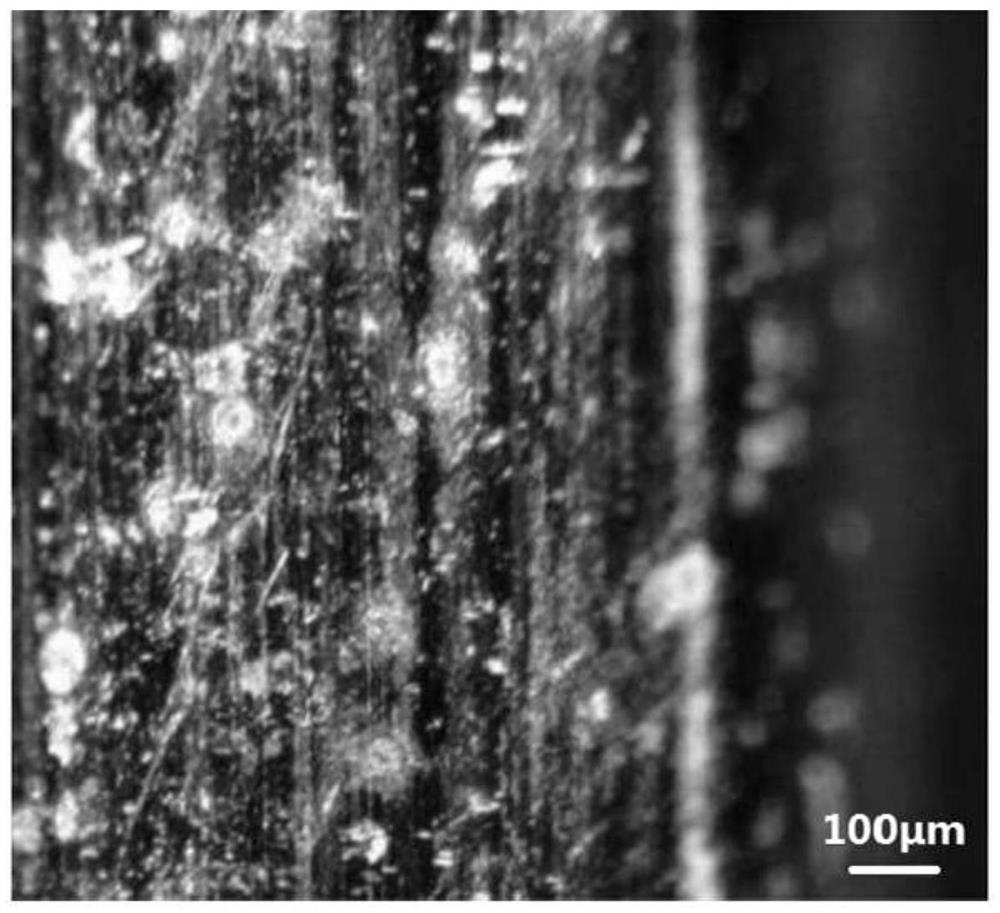A rare earth aluminum alloy wire material for 3D printing and preparation method thereof
An aluminum alloy wire and 3D printing technology, applied in the direction of additive processing, etc., can solve the problems of high operating environment requirements, low material utilization rate, powder environmental pollution, etc.
- Summary
- Abstract
- Description
- Claims
- Application Information
AI Technical Summary
Problems solved by technology
Method used
Image
Examples
Embodiment 1
[0053] A preparation method for a rare earth aluminum alloy wire material for 3D printing is carried out according to the following steps:
[0054](1) Raw material smelting: In a vacuum furnace, the smelting composition is Al-4%Mg-0.3%Mn-0.7%Er-0.3%Zr-0.05%Ti, Fe-3 Pa. (each percentage is mass percentage)
[0055] (2) The ingot in the step (1) is homogenized and annealed at 480°C / 12h, skinned and headed.
[0056] (3) The ingot in the step (2) is continuously extruded at 500°C, after rough drawing, intermediate drawing, annealing, and fine drawing, and then peeled to obtain a wire with a diameter of 1.2mm, according to GB / T 228- 2010 standard for mechanical performance testing, wire tensile strength σ b =356Mpa, yield strength σ 0.2 =325Mpa; the microscopic appearance of the wire is as follows figure 1 shown.
[0057] (4) The filament in the step (3) is printed with a laser fuse 3D printing device, and processed into a test piece after heat treatment. According to the GB / ...
Embodiment 2
[0059] (1) Raw material smelting: In a vacuum furnace, the smelting composition is Al-5%Mg-0.3%Mn-0.4%Sc-0.2%Zr, control Fe-3 Pa. (each percentage is mass percentage)
[0060] (2) The ingot in the step (1) is subjected to homogenization annealing at 350° C. / 10 h, skinned and head removed.
[0061] (3) The ingot in the step (2) is continuously extruded at 500°C, after rough drawing, intermediate drawing, annealing, and fine drawing, and then peeled to obtain a wire with a diameter of 1.2mm, according to GB / T 228- 2010 standard for mechanical performance testing, wire tensile strength σ b =347Mpa, yield strength σ 0.2 =312Mpa, elongation 9%.
[0062] (4) The filament in the step (3) is printed with a laser fuse 3D printing device, and processed into a test piece after heat treatment. According to the GB / T 228-2010 standard for mechanical properties testing, tensile strength σ b =457Mpa, yield strength σ 0.2 =415Mpa, elongation 10%.
Embodiment 3
[0064] (1) Raw material smelting: In a vacuum furnace, the smelting composition is Al-5%Mg-0.3%Mn-0.5%Sc-0.25%Zr to control Fe-3 Pa.
[0065] (2) The ingot in the step (1) is subjected to homogenization annealing at 350° C. / 10 h, skinned and head removed.
[0066] (3) The ingot in the step (2) is continuously extruded at 500°C, after rough drawing, intermediate drawing, annealing, and fine drawing, and then peeled to obtain a wire with a diameter of 1.2mm, according to GB / T 228- 2010 standard for mechanical performance testing, wire tensile strength σ b =414Mpa, yield strength σ 0.2 =382Mpa, elongation 12%.
[0067] (4) The filament in the step (3) is printed with a laser fuse 3D printing device, and processed into a test piece after heat treatment. According to the GB / T 228-2010 standard for mechanical properties testing, tensile strength σ b =492Mpa, yield strength σ 0.2 =458Mpa, elongation 11%.
PUM
| Property | Measurement | Unit |
|---|---|---|
| diameter | aaaaa | aaaaa |
| yield strength | aaaaa | aaaaa |
| tensile strength | aaaaa | aaaaa |
Abstract
Description
Claims
Application Information
 Login to View More
Login to View More - R&D
- Intellectual Property
- Life Sciences
- Materials
- Tech Scout
- Unparalleled Data Quality
- Higher Quality Content
- 60% Fewer Hallucinations
Browse by: Latest US Patents, China's latest patents, Technical Efficacy Thesaurus, Application Domain, Technology Topic, Popular Technical Reports.
© 2025 PatSnap. All rights reserved.Legal|Privacy policy|Modern Slavery Act Transparency Statement|Sitemap|About US| Contact US: help@patsnap.com



